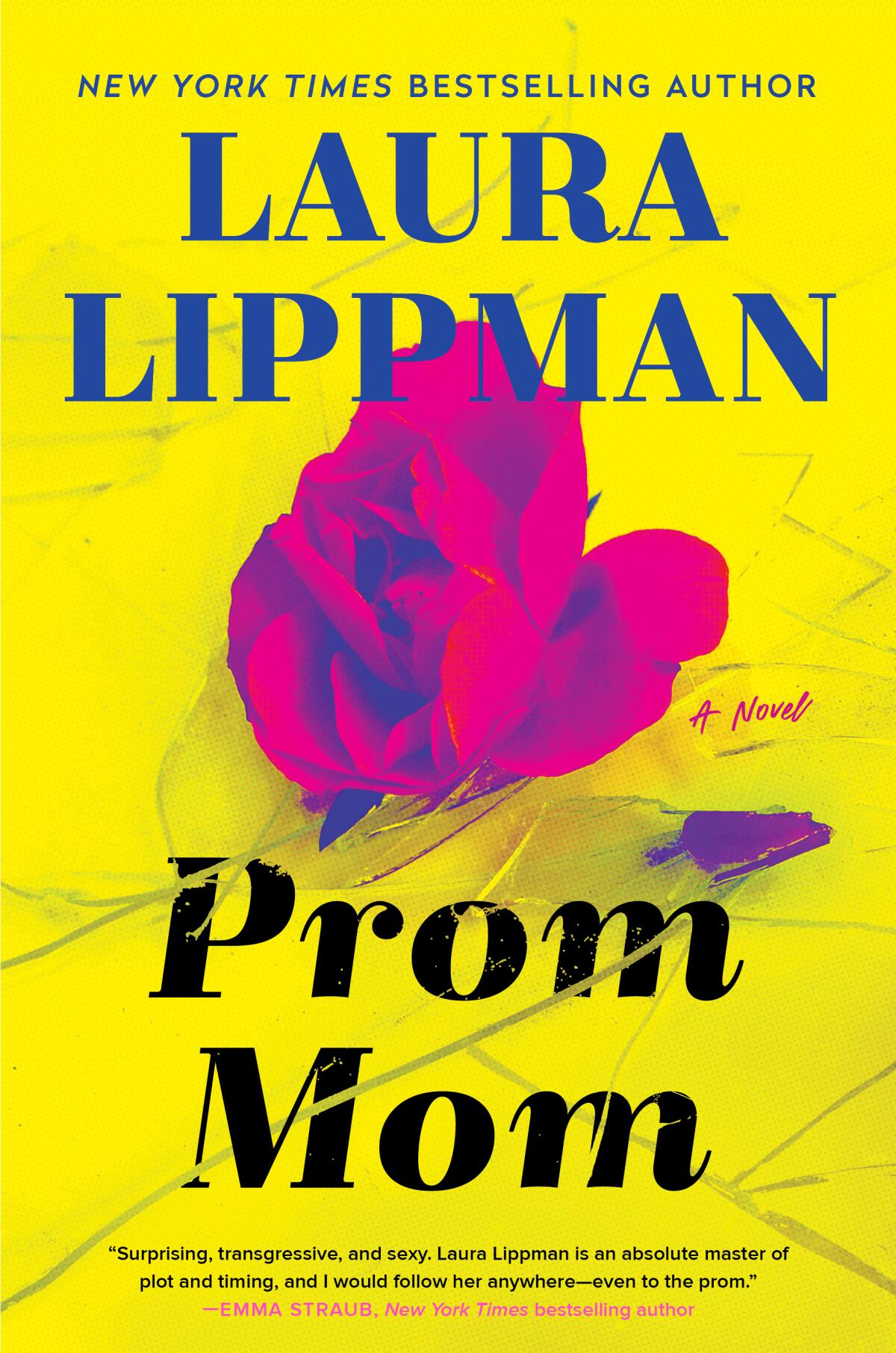How Laura Lippman’s new thriller, ‘Prom Mom,’ honors L.A. noir master James. M. Cain

Review
Prom Mom
By Laura Lippman
William Morrow: 320 pages, $30
If you buy books linked on our site, The Times may earn a commission from Bookshop.org, whose fees support independent bookstores.
Over a career spanning some 25 years, Laura Lippman has done for Baltimore what Walter Mosley did for Los Angeles — used crime fiction to explore the complicated heart of a place that confounds easy nicknames like “Charm City.” Half of her books feature reporter Tess Monaghan, but since 2015 Lippman has been focusing on standalone novels that still center on Baltimore and its environs but boast a broader stylistic palate — a dollop of Raymond Chandler (2019’s “Lady in the Lake”), a wallop of Stephen King (2021’s “Dream Girl”).
As evidenced by her new thriller, “Prom Mom,” one of Lippman’s most interesting and enduring touchstones remains James M. Cain, her fellow Baltimorean (at least until he set out for Hollywood). Cain’s character archetypes — dreamers who become schemers united in plotting and committing a crime — have been seen before in Lippman’s work, particularly 2018’s “Sunburn,” which nods in part to Cain’s 1934 classic “The Postman Always Rings Twice.” But “Sunburn,” set in the 1990s, felt like a more obvious fit; given the tremendous cultural shifts of the last few years, it’s more of a challenge to bring the rotten core of Cain’s twisted strivers into the 21st century.
The 13 most essential L.A. crime books — from Chandler, Hughes, Mosley and Ellroy to Steph Cha and Ivy Pochoda, with some ‘Helter Skelter’ in between.
“Prom Mom” starts deceptively simply in 1997 with junior honors student Amber Glass awash in blood, lying in shock on a hotel bathroom floor. At the moment, Joe Simpson, the jocky friend-with-benefits prom date she’d been tutoring, is downstairs dancing with his ex-girlfriend “for old time’s sake.”

It’s not giving anything away to say that Amber, hopelessly smitten with Joe and unaware she was pregnant, has given birth alone after suffering from what she thought was a stomachache. Or that Joe never stopped by the hotel room after prom to check on his date. (He has well earned the nickname by which he’ll be known in the newspapers: “Cad Dad.”) But it was Amber, soon to be dubbed “Prom Mom,” who showered, changed clothes and walked home after the dance, leaving the extremely premature baby to die. And it was Amber who paid for it, serving time for involuntary manslaughter in a juvenile facility.
Fast-forward to 2019. Amber, who once aspired to study art history, has managed to earn a GED in juvie and, after moving to Florida, a four-year college degree in French. She then settled in New Orleans — keeping to herself, working at a gourmet restaurant and immersing herself in outsider art (many of whose real-life stars Lippman name-checks).
Joe, meanwhile, spent a gap year with an uncle in Houston, where he learned commercial real estate development, followed by college in San Antonio, where he met and married Meredith Duval. Vowing never to have children, he’s returned to Baltimore, where Meredith completes medical school and becomes a plastic surgeon. With her income, they can easily swing a house in a swanky suburb, which they purchased for a steal at close to $2 million.
What crime novelist Laura Lippman is reading and watching in quarantine
And then Amber comes back to Baltimore. Buoyed by an inheritance, she establishes a gallery focused on outsider art in an old-school shopping center. Can she stay away from Joe once he stumbles across the gallery? Or perhaps more to the point: Can he stay away from her?
What do you think?
“Prom Mom” isn’t in a hurry to pull the pin on that question, delighting instead in the slow reveal of characters who aren’t exactly what they seem. Meredith is not, in fact, a money-grubbing body mechanic; emotionally scarred by a bout with childhood leukemia, she participates in annual medical missions in Central America. She also knows all about Joe’s past and, most significantly, forgives him and urges him to forgive himself.
Amber, for her part, is more than the sum of her Prom Mom obsessions. She was sidelined but not derailed in her ambition to reach the heights of culture, becoming a connoisseur of art, food and wine. She is unfailingly loyal to the outsider artists in her gallery, protecting those with criminal records like her from customers looking for dirt.
Joe is another story. Despite his foibles and transgressions, which pile up as the novel progresses, he doesn’t see himself at 40 as a bad guy: “Joe didn’t feel like he was at midlife, so how could he have a midlife crisis? He tried to be grateful, consciously grateful, every day. He wasn’t perfect; he still made mistakes. He could do better and he would, he promised himself. He would. The main thing is, he always tried to do his best.”
But does he really? Without being didactic, Lippman shows how politics, COVID and the social fissures exposed by the George Floyd protests have changed the prism through which we view self-serving narratives like Joe’s. The result is a noirish tale unlike anything Cain could have dreamed up in “Double Indemnity.”
In Bruce Borgos’ series-launching rural Nevada thriller ‘The Bitter Past,’ a small-town sheriff stumbles on a plot straight out of ‘The Americans.’
Nevertheless, Cain’s 1936 masterpiece whispers through the pages of “Prom Mom.” We hear it when a member of Meredith’s book club frets about reverse racism if she uses a particular word when discussing Toni Morrison’s “Beloved.” Or when Joe’s sexual partners participate in the deception of his steadfast wife. Or when the COVID-induced implosion of commercial real estate drives Joe to levels of desperation all too familiar from Cain’s Depression-era narratives.
This last element — Joe’s struggle to hold on to his privilege and his willingness to manipulate anyone who gets in his way — is the most timeless, the most Cain-like, moment in the book. Here is a dreamer and schemer for the 21st century, ready to make hell break loose.
When it does, the surprises, delivered close to “Prom Mom’s” final pages, are the kind that might compel you to reread the whole story again, just to find out how Lippman layered this quadrangulate tale with clues and misdirection about Joe and the women who enable him, and how she managed to make such a classic form feel so of the moment. That formidable skill makes “Prom Mom” one of Lippman’s most seductively mesmerizing novels, not just an homage to Cain but a powerful successor.
Woods is a book critic, editor and author of the Charlotte Justice mysteries.
More to Read
Sign up for our Book Club newsletter
Get the latest news, events and more from the Los Angeles Times Book Club, and help us get L.A. reading and talking.
You may occasionally receive promotional content from the Los Angeles Times.










